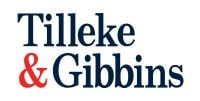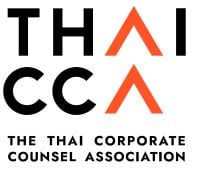

Department head - international legal and intellectual property | Boon Rawd Brewery Company







Akarin Aganidad
Department head - international legal and intellectual property | Boon Rawd Brewery Company
Team size: Seven
What are the most significant cases or transactions that you have recently been involved in?
Over the past few years, I have handled several cases where other companies owed debts to us, and managed to negotiate and liaise with those companies, successfully collecting more than US$3.7m. All were settled amicably with no lawsuits. These helped to mitigate the loss with the companies maintaining their relationship, which is in the best interests of the parties involved.
Other cases were in the M&A field, in which I handled all the relevant contracts and documents in the projects. This was done quickly and efficiently, so that the companies could run the new business as soon as possible.
There were also IP matters – one of my key responsibilities – in which our companies entered into many license agreements with prominent IP owners to collaborate in various businesses. These notably included those in the food and beverages sector, in which we delivered quality products to the customers.
How do you see the general counsel role evolving in Thailand over the next five-ten years?
In five to ten years from now, the role of general counsel and in-house legal advisors will evolve constantly to meet the rapidly changing demands of organisations in the future business world. In addition to overseeing day-to-day legal challenges affecting the business and managing legal staff, in-house lawyers will be expected to diversify their service offering to overcome a growing list of commercial challenges. Whether it is managing internal investigations, defending their company in cross-border disputes, handling complex data or many other matters, the required skillset of the profession is developing at an exponential rate. The role of in-house legal teams is changing quickly. The businesses they support are going digital. The regulatory environment is getting more complex. Pressure to cut costs is at an all-time high, while standardization and automation are creating new routes to efficiency and insight. COVID-19 has ramped up these challenges even more, but the sudden move to remote work is also proof of concept for relying even more on connectivity, centralisation and technology.
How do you motivate and manage your legal team well?
I keep my legal team motivated and manage their morale in many ways.
Share as much information as possible: during times of disruption and transition, as has been the case recently, communication is king. Hold virtual meetings or send email updates more frequently, share useful information as much as you can about what is happening and what will happen next.
Set clear goals and expectations: legal team members are less likely to feel unsettled by disruption if they have tangible goals to work towards. Set these goals carefully — they should be challenging but realistic. Escalating workloads can place considerable strain on team members, so meet regularly with your team to evaluate workloads, set priorities and rebalance responsibilities. Encourage teamwork, as change or challenge is less intimidating when teams confront it together. By giving individuals opportunities to contribute their skills and ideas in a positive way, you can encourage team members to feel a sense of accomplishment in everyday tasks.
Show appreciation: adapting to change is never easy, so it’s important to give kudos to teams who rise to the challenge. Show appreciation for outstanding work during the most crucial weeks and months by recognizing achievements or providing appropriate rewards — thank-you notes, gift cards, or public recognition during meetings or company events, for example.
Set clear performance standards: hold regular staff meetings to discuss what went right and what went wrong in specific instances, stressing that these meetings are not about assigning blame but resolving problems. Approaching these instances in a positive, proactive, and collaborative manner can leave the team feeling involved in the process. Having a role in establishing these performance standards will leave them feeling invested in meeting them.
Is the effect of AI on the legal world overplayed or underplayed?
It is still unclear what the full impact of AI on the legal market will be. I believe there will be a clearer picture in the next ten years, as the boom in generative AI-based tools being released into the market slows, and firms and in-house teams learn how to best implement them. The trends suggest an overall net positive impact. However, there are clear warning signs which should be considered. With the outcomes of the AI global summit focusing on the AI safety, there is the chance that developments in AI will be limited to ensure there is a regulatory approach to maximise the benefits and take into account the risks associated with AI. This could therefore further organisations’ ability to properly assess the need, usage and benefits/risks of AI tools before they are fully implemented within legal teams. This institute, alongside the understood warning signs, should allow individuals to properly analyse their need for certain tools, and how to correctly implement them. This will help prevent users from jumping into using a new system without the necessary due diligence.
Department head: international legal and intellectual property | Boon Rawd Brewery